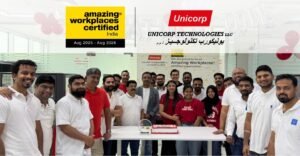Unilever’s Global DEI Strategy: How to Scale Diversity and Inclusion
Moving beyond mandates, Unilever proves that authentic, data-driven DEI is the ultimate competitive advantage in the war for global talent. Discover their strategy for scaling inclusion while respecting crucial local cultural and generational differences.
Diversity, Equity, and Inclusion (DEI) has definitively transitioned from a “nice-to-have” HR function to an essential operational and financial imperative. For multinational corporations in 2025, the challenge isn’t merely achieving diversity numbers, but mastering the paradox of global scale: maintaining unwavering core values while adapting policy to profound cultural, legislative, and generational variances across markets.
The contemporary professional workforce demands an authentic, measurable ecosystem of equity. When organizations fail to embed genuine inclusion, the consequence is not just poor morale, but a direct threat to the bottom line, leading to accelerated attrition, particularly among high-potential, values-driven talent.
Unilever provides a compelling global benchmark for tackling this complexity. Moving beyond rigid, one-size-fits-all mandates, the company has pioneered a decentralized, data-led DEI model that achieves global strategic alignment while granting necessary local cultural autonomy. This approach is powerful evidence that authentic inclusion is the primary driver of both innovation and organizational resilience
Navigating the Fragmented Global Workforce
Scaling inclusion across a global operation, with over 128,000 employees in 100+ countries, is inherently complex. Organizational culture is fragmented by deep-rooted differences in communication styles, authority norms, and relationships.
Generational differences introduce another layer:
- Younger Employees (Gen Z/Millennials) prioritize flexible work, personal purpose alignment, and transparent social action.
- Older Workers often value stability, institutional mentorship, and formal processes.
Industry reports highlight this leadership gap: while 76% of executives recognize DEI as critical, a much smaller number feel truly equipped to implement it successfully across diverse borders.
To effectively manage this global complexity, Unilever established Regional Inclusion Councils. These local teams translate the company’s global goals into culturally nuanced, actionable strategies. This decentralized structure, which might be termed “Agile Inclusion,” allows for effective local execution without compromising shared equity standards.
Data-Backed Inclusion: Insights from the Employee Experience
Authentic DEI begins with a clear, unbiased understanding of the actual employee experience. Workplace surveys serve as an essential tool to uncover lived realities and design practical, targeted solutions.
In its recent reporting, Unilever provided insights from its global employee survey (UniVoice). For 2024, the survey reflected an Employee Engagement Score of 79% among its global workforce. This internal data helps identify friction points and areas for targeted intervention.
Targeting Disparity with Data:
Unilever tracks diversity metrics rigorously, showcasing where specific focus is needed:
- Gender Balance: As of 2023, 55% of Unilever’s management roles globally were held by women, demonstrating gender parity at this level. However, representation drops in the most senior roles: women comprised 36% of senior management (reporting directly to the Unilever Leadership Executive) and 15% of the Unilever Leadership Executive itself.
- Racial and Ethnic Diversity: While full global data is restricted by local laws in many countries, internal data from regions like the UK shows that 24% of employees identified as being from a minority ethnic background in 2023.
By drilling into these numbers, Unilever can deploy local programs. For example, survey findings might reveal that career growth barriers are distinct for employees in Latin America versus Europe, or that parental leave policies need culturally specific enhancement in South Asian teams. These findings then directly inform the design of local mentorship programs, leadership pathways, and flexible benefit options.
Best Practices for Surveys: Organizations should use bias-aware question design, offer multiple language options, and ensure anonymity to elicit truthful, stigma-free responses.
Related Posts
Accountability Through Independent Certification
For inclusion efforts to be structured and credible, they must be validated by independent third parties. Certification programs provide external accountability and a measurable roadmap for progress.
Unilever works with external bodies like the EDGE Certification and the Bloomberg Gender-Equality Index to benchmark its efforts in areas such as gender equity, representation, and pay fairness. The EDGE certification, for instance, requires organizations to measure and meet a standard of equal pay for equivalent work, including an analysis of any unexplained gender pay gaps.
Internally, the company introduced an Inclusive Leadership Certification program in 2023. This is an investment in capability building, featuring intensive training in bias interruption techniques, cross-cultural communication, and practical empathy building.
Results are tied to accountability:
- Leadership participation in inclusion efforts has demonstrably increased.
- Studies have shown that inclusive leadership behaviors, such as active listening and openness, can lead to 17% higher engagement and 20% greater collaboration on high-performing teams.
Cultivating Inclusive Leadership and Cultural Integration
Inclusion can only be sustained if it moves beyond policy and becomes a lived daily experience driven by leadership.
Unilever has expanded its reverse mentoring program, strategically pairing senior executives with junior employees. This initiative is designed to educate leadership on contemporary workplace issues like generational differences, digital burnout, and intersectionality.
Leadership development is now focused on:
- Bias Interruption: Teaching leaders how to recognize and address bias in real-time decision-making.
- Psychological Safety: Creating an environment where employees feel comfortable sharing experiences and expressing diverse opinions without fear of reprisal.
Leaders are challenged to routinely ask themselves, “Whose voice isn’t in this conversation?” and “What assumptions might I be making?” This constant self-reflection is the engine for lasting cultural change.
Tangible Impact and Future Focus
Unilever’s integrated strategy has yielded clear, quantifiable outcomes:
- Leadership Diversity saw significant growth between 2022 and 2024.
- Engagement Scores related to inclusion showed a 30% improvement in some tracked areas.
- Minority Employee Turnover in specific markets, such as Europe, decreased by 18% following targeted interventions.
The key lesson from Unilever’s journey is that inclusion is not a quick fix. In regions where discussions about inequality carry cultural stigma, the company wisely prioritized building trust through peer ambassador networks and creating safe platforms for authentic employee storytelling before attempting to scale formal programs.
The road ahead requires continued investment. With global mental health, accessibility, and economic equity becoming critical priorities, Unilever’s sustained commitment to data-driven, culturally adaptive inclusion is setting the benchmark for the future of world-class workplaces.
Disclaimer: This article is for informational purposes only. While efforts are made to ensure accuracy, readers should verify information and seek professional advice as needed.











